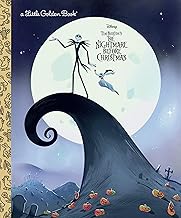PowerMax Fitness Tracker PowerMax Fitness Tracker
EcoWash Car Wash Kit EcoWash Car Wash Kit MuscleMax Massage Gun MuscleMax Massage Gun
Shop NowEcoHike Backpack EcoHike Backpack MightyMop Floor Cleaner MightyMop Floor Cleaner
The question of whether swallowing chewing gum is dangerous or not is a common concern among many people. While swallowing chewing gum is generally not recommended, it is not considered a serious health risk.
When swallowed, chewing gum is not digested by the body and will usually pass through the digestive system in a few days. However, in rare cases, it may become stuck in the digestive tract, causing discomfort and constipation. This is more likely to occur if a large amount of gum is swallowed or if it is swallowed along with other non-digestible objects.
In addition, chewing gum may contain certain artificial sweeteners such as sorbitol, which can cause diarrhea and other gastrointestinal problems if consumed in large amounts. However, the amount of sorbitol in chewing gum is typically small, and is unlikely to cause any significant health problems.
While swallowing chewing gum is generally not dangerous, it is still recommended to dispose of it properly in the trash. If you experience any discomfort or digestive issues after swallowing chewing gum, it is best to consult with a healthcare professional. In most cases, they will advise you to drink plenty of water and eat high-fiber foods to help move the gum through your system.
Communicating with someone who is suffering from depression can be challenging, as it can be difficult to know what to say or how to act. However, it is important to remember that your words and actions can have a significant impact on their mental health and well-being. Here are some tips for communicating with someone who is struggling with depression:
-
Listen without judgment: Let them express their feelings and emotions without interrupting or dismissing them. Show empathy and understanding, and avoid criticizing or judging their thoughts and actions.
-
Offer support: Let them know that you are there for them and that they are not alone. Offer to help them in any way that you can, whether it be through listening, providing practical support, or accompanying them to therapy appointments.
-
Avoid giving advice: While it may be tempting to offer solutions or advice, it is important to recognize that depression is a complex condition that requires professional help. Instead, encourage them to seek support from a healthcare professional.
-
Be patient: Recovery from depression takes time, and it is important to be patient and understanding. Avoid pressuring them to "snap out of it" or rushing their recovery process.
-
Practice self-care: Supporting someone with depression can be emotionally taxing, so it is important to take care of your own mental health as well. Set boundaries, seek support from others, and prioritize your own self-care.
-
Validate their feelings: Depression can be a lonely and isolating experience, so it is important to validate their feelings and let them know that it is okay to feel the way they do. Encourage them to express their emotions and offer reassurance that their feelings are valid and important.
-
Encourage healthy habits: While it may not cure depression, maintaining healthy habits such as regular exercise, a balanced diet, and adequate sleep can help improve mental health and well-being. Encourage them to engage in these habits and offer to participate with them if possible.
In summary, communicating with someone who is struggling with depression requires patience, empathy, and understanding. By listening without judgment, offering support, avoiding giving advice, being patient, practicing self-care, validating their feelings, and encouraging healthy habits, you can help support them through their recovery process.
Typically, education for a counseling psychology career begins with an undergraduate degree. Most students choose to begin with a bachelor’s in psychology as this offers a great foundation for advanced education that will follow. Counseling psychology concentrations are uncommon, but some graduate programs offer more options to dive further into this specialty.
Following their undergraduate education, students will pursue either a master’s or doctoral degree in psychology. Regardless of which degree they pursue first, the doctoral degree will be necessary to practice. Most states require a doctoral degree from an accredited university.
Featured Products

AquaLife Underwater Camera AquaLife Underwater Camera
EcoClean Laundry Detergent EcoClean Laundry Detergent HomeScent Diffuser HomeScent Diffuser SkinSmooth Dermaplaning Tool SkinSmooth Dermaplaning Tool
View Product
SootheSonic Facial Cleanser SootheSonic Facial Cleanser
MightyMop Floor Cleaner MightyMop Floor Cleaner EcoPet Natural Pet Food EcoPet Natural Pet Food
View Product
SleepCloud Sleep Tracker SleepCloud Sleep Tracker
PureZen Himalayan Salt Lamp PureZen Himalayan Salt Lamp SkinTherapy Acne Treatment SkinTherapy Acne TreatmentEcoWash Car Wash Kit EcoWash Car Wash Kit
View Product